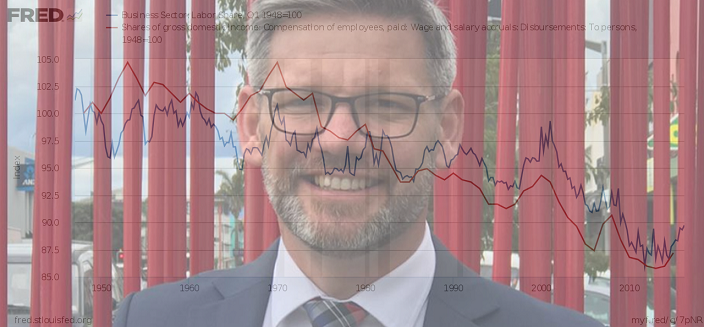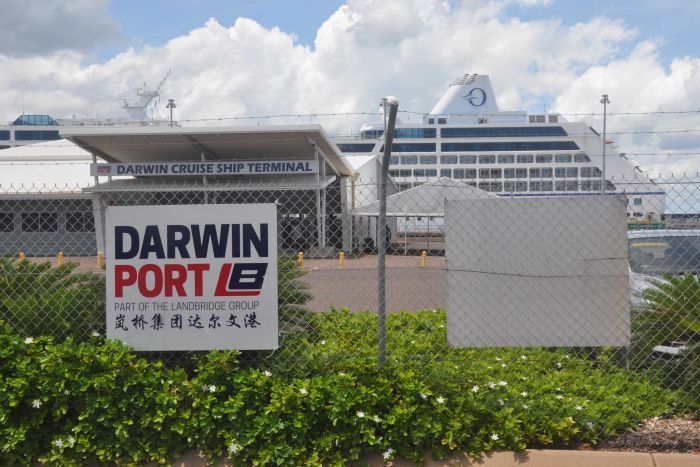
In the financial sections of the world’s news websites, the reader often finds reference to “neoliberalism” or even “the prevailing neoliberal paradigm.” This is something so all-pervading that its necessity is taken for granted. It’s very important to understand neoliberalism, because the neoliberal mindset is the one in which things get done. This chapter explains.
In short, neoliberalism is the prevailing economic paradigm of Clown World.
The ‘neo-‘ prefix denotes that this is not the first time we have lived under this economic paradigm, and the ‘liberal’ root means that this economic paradigm is characterised by a lack of regulation of business activities. The liberty in question isn’t your liberty from coercion by capital; it’s the liberty of capital to coerce you.
As anyone who has played a game of Monopoly will be aware, the problem with economic liberalism is that it ends up with massive inequality. Absent a system of wealth redistribution, the ability of landowners to charge rent means that they eventually end up with all the money. Their ever-increasing ownership of capital leads to ever-increasing rents until the masses are as impoverished as any medieval peasant.
In the real world, economic liberalism led to the Great Crash of 1929, and from there to the Great Depression. This always happens under liberalism, because once all the money ends up in a few hands then no-one but them have any spending power. One no-one has any spending power, the economy slows down, workers get laid off, and recession begins.
The original liberalism was ended by American President Franklin D. Roosevelt, who brought in the “New Deal“. This was a drastic reorganisation of the economic system, intended to reverse all the advantages accrued by what Theodore Roosevelt had earlier called “the representatives of predatory wealth.” Decried as both Fascism and Communism by FDR’s opponents, the New Deal ended the Great Depression in America.
The Great Depression ended much more violently in Europe. The anger and paranoia brought about by the terrible economic conditions saw many people cast about for a scapegoat. This desire to find someone to blame for the desperate problems made it possible for an opportunist like Adolf Hitler to come to power, and the consequences of that are known to all.
After World War II, Western politicians became extremely cautious about allowing a return of the economic conditions that they believed were the ultimate cause for the bloodshed. Absent extreme and desperate poverty, they reasoned, the people would have no cause to give their power to a supremacist who wanted to conquer their neighbour.
As a result, those politicians allowed the workers to get a fair deal. Instead of all the economic power being held by a few people who ruled the others like kings, it was widely distributed across the population. This egalitarian economic arrangement continued for almost 40 years. This time period encompassed some great decades – the 50s, 60s and 70s allowed for freedom and creative expression to flourish all over the West.
It was too good to last.
Neoliberalism arose in the early 1980s, after the ruling class realised that it had been 40 years since the end of World War II, and the hard-won lessons about solidarity had been forgotten. Ronald Reagan and Margaret Thatcher, no less opportunistically than Hitler himself, came to power promising a shake-up of the existing economic paradigm. Their recipe for greatness was low taxes, low welfare and free markets.
The influence of America and Britain is such that practically the entire Western World is now neoliberal. Arse-licking dogs like David Lange forced neoliberalism on an unsuspecting New Zealand public after 1984, laying the economic foundations for the Clown World era. The demented Ruth Richardson piled on the pain by slashing the Family Support allowance. Helen Clark opened the immigration floodgates and John Key kept them open.
This obsession with money, at the expense of society itself, led us to here. Neoliberalism is to consume, mindlessly and without end. All higher culture and all spiritual traditions are to be destroyed because they prevent people from consuming. The borders must be thrown open because every new immigrant – regardless of what crimes they commit – is a new consumer.
By 2020, neoliberalism has, much like the original liberalism, led to the concentration of wealth in extremely few hands. Although society has become shittier in a great many ways, this increasing shitness has brought with it vast profit potential, and those profiting greatly are putting enormous energy into perpetuating the system. This combination of increasing diversity and increasing inequality is one of the major causes of Clown World phenomena.
All over the West, economic desperation is now standard for the youth. A study showed that the average wage in New Zealand has less than 40% of the house-buying power that it had 26 years ago. The youth suicide rate is skyrocketing, and the individual despair felt by these unfortunates is starting to become a generational malaise.
Much like the original liberalism, neoliberalism has set the scene for totalitarian extremists to come to power in the West. Although Donald Trump isn’t the one, a new Hitler could easily take advantage of the worsening economic conditions to channel the people’s desperation into another paroxysm of violence. The Weimar Republic was the original Clown World, and our current iteration of it could end in a similar fashion.
*
This article is an excerpt from Clown World Chronicles, a book about the insanity of life in the post-Industrial West. This is being compiled by Vince McLeod for an expected release in the middle of 2020.
*
If you would like to support our work in other ways, please consider subscribing to our SubscribeStar fund. Even better, buy any one of our books!



